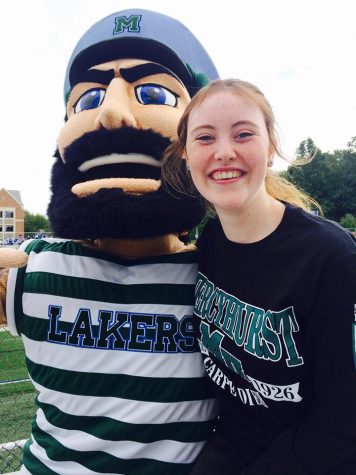Thoreau’s influence examined
October 30, 2017
On Oct. 26, the Mercyhurst History Department and the Evelyn Lincoln Institute for Ethics and Society presented a panel discussion examining the life of Henry David Thoreau and his influence on the use of civil disobedience in American society.
The discussion, which was entitled “To Stop the Machine: Dissent, Nonviolence, and the Spirit of Henry David Thoreau,” took place this year in honor of the bicentennial of Thoreau’s birth.
Thoreau, most famous for his 1854 work, “Walden,” was also discussed in the context of his role as a transcendentalist, essayist, poet and philosopher.
The forum brought together four panelists from various academic disciplines and was chaired by Chris Magoc, Ph.D., professor of History. Using readings from Thoreau’s works as well as modern examples, the speakers discussed the exercise of nonviolence in the historical struggles for social, economic and environmental justice in America.
A focus of the panel was Thoreau’s call to action to “stop the machine” — words that have moved many to act since his 1849 publication of “Resistance of Civil Government” (“Civil Disobedience”).
Christina Riley-Brown, Ph.D., professor of English, opened the forum by speaking about the history of peaceful resistance in the United States.
Riley-Brown said that Thoreau called upon “the moral duty of every citizen to nonviolently oppose all injustices in a modern society,” and that Thoreau had contributed to the use of nonviolent protest by every generation since.
She provided examples from the current cultural climate such as the DACA Program, and read aloud some of the more radical words of Thoreau. A particularly impactful quote was his reminder that “that government is best which governs least. That government is best which governs not at all.”
Continuing to address the application of Thoreau’s principles, Kevin Sullivan, Ph. D., professor of Philosophy, spoke about Thoreau as a philosophical influencer.
Sullivan said that Thoreau had “called us all to live deliberately so that we can weigh the moral consequences of our actions.”
In doing this, he said, we are friction to the machine. Sullivan compared Thoreau to a Socratic figure, who truly believed in how life was to be examined in order to be lived.
Following this, James Fisher, Ph.D., of Edinboro University of Pennsylvania, spoke as the third panelist. He examined Thoreau from the academic disciplines of history, politics, language and culture.
Citing three examples from recent history — the work of Gandhi, the Birmingham, Alabama, Campaign, and the Antiwar Movement — he looked at the intersection of civil disobedience with constitutional rights. Fischer expressed concern about the possible transition of this resistance into violence, and the use of the “heckler’s veto” in free speech in modern society.
To conclude the forum, retired Edinboro history professor James Young, Ph.D., discussed Thoreau’s influence with reference to his own book, “Union Power: The United Electrical Workers in Erie, Pennsylvania.”
He spoke of the nonviolent struggle of local electrical workers to defend their union, and industrial democracy itself in the face of attacks during the time of McCarthyism. He called on the audience to leave thinking about our current society, and asking “What are we democratic about?”
In closing remarks, Magoc touched on the contemporary struggle to confront the climate crisis.
The panel ended with a collaborative question-and-answer session. While enjoying light refreshments, the audience was given the opportunity to ponder how one is called to live out the courageous spirit of Thoreau in today’s climate.

